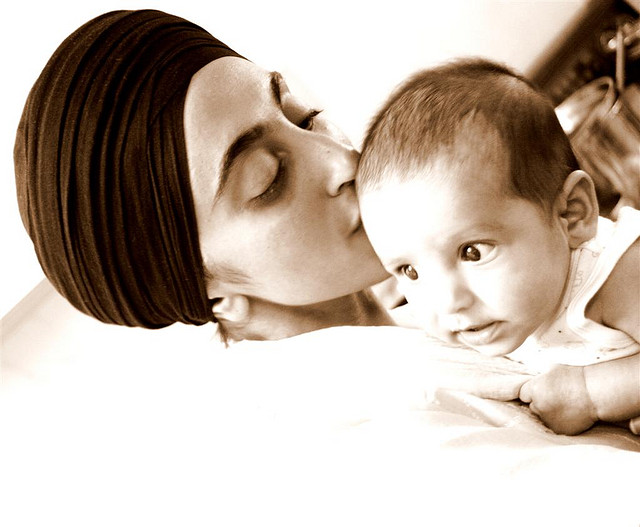Using the diminutive in English Posted by Gabriele on Dec 30, 2014 in English Language
Many languages have a special way to talk about things (usually people) with tenderness, love, endearment, or familiarity – this is usually referred to linguistically as the “diminutive.” A diminutive form of a word implies that something is small, cute, loved, or special. It is often used when referring to children, but as I already said, it is also used to express love and affection, even with adults. Diminutives are also sometimes used to shorten long words or phrases in casual speech.
As in other languages, the diminutive forms of words in English usually have special suffixes. This is the type of diminutive we are going to focus on here. There are other forms of diminutives in English, one example of this is something called the sibling diminutive. This is not the focus of this post, but here are two examples of sibling diminutives in English: “movie” instead of “movie theater” and “plane” instead of “airplane.” As you can see from these two examples the sibling diminutive is just a shortened form of a word. There are many examples of this type of diminutive in English, can you think of any others?
The type of diminutive I want to focus on today is the type used to express affection or endearment. These diminutives are produced by adding special suffixes to nouns.
Here are some common suffixes used to create diminutives in English.
-y or –ie (these two are pronounced the same)
-sie, -sies or -sy
-o or -io
-s
Here are some examples of these suffixes applied to words to create diminutives.
Sally, Maggie, Bobby, Jimmy, sweetie, hottie (from the word hot, which can mean good looking)
sissy (from sis or sister), popsy (from pop – another word for dad), tootsie, halfsies (from half), itsy-bitsy (this is its own word meaning very small)
bucko (from buck another word for a guy), daddio (from dad), kiddo (from kid), Jacko
Wills, Becks, Bells, pops (from pop – another word for dad)
As you can see many of these examples are names (all the words that are capitalized). The use of diminutives to create loving nicknames is very common in English. Also did you notice that the sound expressed in writing as –ie or –y (which sound the same) is the most common way to make the diminutive in English? So, if you are thinking about trying to use the diminutive in English to communicate love, affection, or that something is small, your best bet is to add an –y to the end of the word you are talking about. It won’t work in all cases, but it works almost al the time.
Why not try using the diminutive in English sometime this week and see how it goes? Have fun with it!

Build vocabulary, practice pronunciation, and more with Transparent Language Online. Available anytime, anywhere, on any device.
About the Author: Gabriele
Hi there! I am one of Transparent Language's ESL bloggers. I am a 32-year-old native English speaker who was born and raised in the United States. I am living in Washington, DC now, but I have lived all over the US and also spent many years living and working abroad. I started teaching English as a second language in 2005 after completing a Master's in Applied Linguists and a Certificate in English Language Teaching to Adults' (CELTA). Since that time I have taught ESL in the United States at the community college and university level. I have also gone on to pursue my doctorate in psychology and now I also teach courses in psychology. I like to stay connected to ESL learners around the world through Transparent Languages ESL Blog. Please ask questions and leave comments on the blog and I will be sure to answer them.





Comments:
Imad Rifaat Madhat:
Diminutives are found in all human languages to show smallness, familiarity, and intimacy. They are sometimes used for the sake of economy, instead of using two words (small book, booklet)